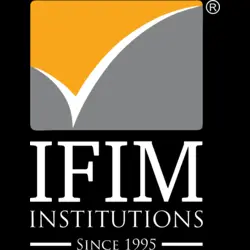MBA Finance is a specialized master of business administration program focused on principles and practice of finance. It equips students with the knowledge and skills necessary to manage financial operations within the organizations. The subjects provide a comprehensive understanding of financial markets and comparative corporate finance, which are essential to making informal strategic decisions. This is an article that explores deep into the specialization in MBA Finance, offering key insights and career paths.
Understanding MBA Finance
The curriculum of the MBA finance program is designed to provide a comprehensive understanding of financial management across various industries of the world. It involves investment strategies and economic analysis, while the key subjects typically include the following.
| Key Subjects | Description |
| 1. Financial Accounting | Understanding financial statements, accounting in business, decision-making, and accounting principles. |
| 2. Investments | Analyzing various investment vehicles, portfolio management, and principles of risk management across various industries. |
| 3. Derivatives and Risk Management | Learning about financial derivatives such as options and futures and strategies to manage such financial risks. |
| 4. Corporate Finance | Examining capital structure, corporate governance, and funding strategies to optimize the company’s financial performance. |
| 5. Mergers and Acquisitions | Understanding strategic, legal aspects, and financial aspects of corporate mergers and acquisitions. |
| 6. International Finance | Exploring the global financial environment, foreign exchange markets, and financial management. |
| 7. Financial Modeling and Evaluation | Developing skills to create financial models for business evaluation, decision analysis, and forecasting. |
| 8. Behavioral Finance | Investigating how psychological factors and shifts affect financial decision-making and market behavior. |
Top MBA Finance Programs
The following are the Top B-schools in India offering expertise in Finance
| MBA Finance Colleges in India | Fee (INR in lakhs) |
| (Indian Institute of Management) IIM Calcutta | 27 |
| (Symbiosis Institute of Business Management) SIBM, Pune | 22.20 |
| Xavier School of Management, Jamshedpur | 14 |
| National Institute of Bank Management | 12 |
| Department of Management Studies, IIT Delhi | 10.40 |
| Dr Dy Patil, Navi Mumbai | 8.40 |
| Christ University, Bangalore | 7.60 |
| NMIMS, Mumbai | 1.44 |
| Savitribai Phule Pune University | 1.29 |
| Jain University | 1.2 |
Career Opportunities in MBA Finance
MBA in finance offers a wide range of career opportunities available to allow available across various sectors here are some of the prominent ones.
| Career Roles | Description |
| 1. Financial analyst | Conducts the financial analysis and modeling to support investment decisions. These are helpful in budget planning and performance assessment within the organizations. |
| 2. Investment banker | Assists clients with raising capital, and debt, overseeing mergers and acquisitions, and advisory services for corporate restructuring and strategic financial planning. |
| 3. Risk manager | Identifies and analyzes financial risks within the organization and develops strategies to mitigate the risks effectively. |
| 4. Portfolio manager | Manages investment portfolios for individuals or institutions by deciding on asset allocation and investment strategies. |
| 5. Financial consultant | Provides expert advice to individuals or business institutions on financial planning, investment strategies, policies, and wealth management. |
| 6. Corporate finance | The Manager oversees the financial operations of a company, including budgeting, forecasting, and planning to ensure financial stability and growth. |
| 7. Treasury manager | Manages the company’s liquidity, investments, and risk-related factors, ensuring optimal use of cash and financial resources. |
| 8. Chief financial officer, CFO | The senior executive officer is responsible for managing financial actions like financial planning, risk management, and financial reporting. |
| 9. Credit analyst | Evaluate the creditworthiness of potential borrowers and assess financial statements and economic conditions to determine the risk levels. |
| 10. Equity analyst | Analyzes stocks and other securities, providing investment recommendations based on detailed research and financial analysis. |
Skills Required for a Successful Career in Finance
The MBA finance program not only imparts financial education with theoretical knowledge but also focuses on developing various practical skills that are essential for career growth and future opportunities. Some of the key skills developed include:
1. Analytical Thinking – Analyze complex financial data and make informed decisions.
2. Financial Modeling – Build and interpret financial models to forecast business performance and value investments.
3. Quantitative Analysis – Use mathematical and statistical methods to evaluate financial information.
4. Decision Making – Apply strategic thinking to make sound financial decisions aligning with organizational goals.
5. Risk Assessment – Identify, analyze, and mitigate financial risks in various business scenarios.
6. Proficiency in Financial Software – Usage of financial software in tools for data analysis and financial modeling.
7. Strategic Planning – Understand long-term financial strategies in the development to drive business growth.
Benefits of Pursuing an MBA in Finance
Pursuing an MBA in finance offers significant benefits such as:
1. Enhanced knowledge and skills – Graduates gain an advanced understanding of financial principles, market analysis, and investment strategies, equipping them with expertise to tackle complex financial challenges.
2. Networking opportunities – Graduates can gain connections with industry professionals, alumni, and peers to expand their professional network and open doors to new career opportunities.
3. Career advancement – Opens doors to high-level positions and leadership roles in finance across various sectors and industries.
4. Increased earning potential – MBA graduates in finance typically enjoy higher salaries and better competition packages compared to other specializations.
5. Global perspective – Graduates can develop a comprehensive understanding of international finance and global markets, which prepares them for further multinational cooperations and global finance sector opportunities.
6. Practical experience – Through the course of the curriculum, students participating in group sessions, case studies, and internships have more edge in the job market with a knowledge of the practical application of financial theories and concepts to real-world scenarios.
Conclusion
An MBA in Finance offers a deep dive into financial management, equipping students with vital skills and knowledge for successful careers. With a curriculum covering financial accounting, investments, risk management, and more, graduates are well-prepared for diverse roles in the finance sector. Top programs in India, such as those at IIM Calcutta and SIBM Pune, provide rigorous training and valuable networking opportunities. The degree enhances career prospects, increases earning potential, and provides a global perspective on financial markets. For those seeking to excel in finance, an MBA offers both advanced expertise and practical experience, paving the way for significant professional growth.
FAQs (Frequently Asked Questions)
What are the core subjects typically covered in an MBA Finance program?
Financial Accounting, Investments, Derivatives and Risk Management, International Finance, Mergers and Acquisitions, Corporate Finance, Behavioural Finance, and Financial Modelling and Evaluation are the Core Subjects.
What are the key skills required to succeed in a career in finance after completing an MBA?
Analytical Thinking, Quantitative Analysis, Financial Modelling, Risk Management, Estimating and Specific Planning, and Proficiency in Financial Tools and Software are the key skills for a career in Finance.
How do I choose the best MBA Finance program for my career goals?
Consider faculty expertise, curriculum alignment with career goals, networking, opportunities, learning success, and other available sources for professional development before choosing the best MBA Finance program.
What are the current trends and prospects in the financial sector?
Innovation, Cryptocurrency, Adoption, Regulatory Changes, Data Analytics, and Sustainable Finance are the current trends and prospects with technological advancements in Finance.
What are the career opportunities available for MBA Finance graduates?
Financial Analysts, Investment Bankers, Portfolio Managers, Financial Consultants, Risk Managers, Corporate Finance Managers, and CFOs are the diverse career opportunities available for MBA Finance graduates.


